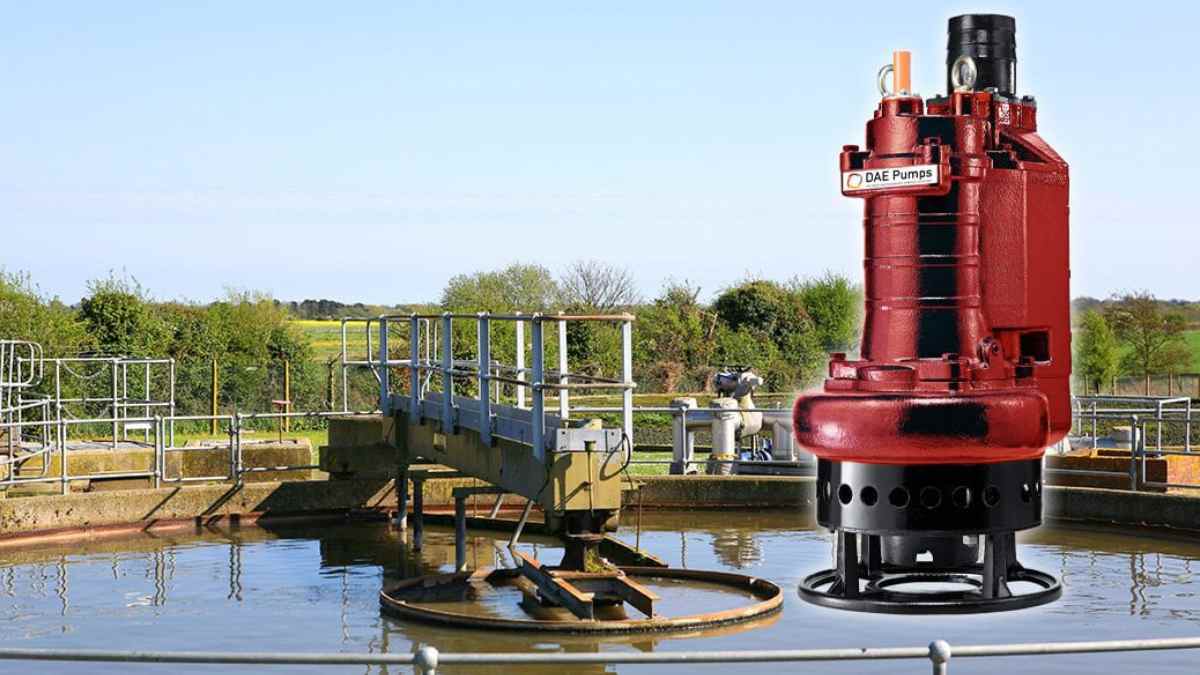Table of Contents
ToggleIntroduction to Submersible Sludge Pumps
Submersible sludge pumps play a crucial role in the efficient and safe handling of industrial waste. These pumps are specifically engineered to transport thick, viscous, and solid-laden fluids from industrial operations, making them indispensable across multiple sectors. As industries increasingly focus on sustainability and regulatory compliance, the importance of using reliable and effective pumping systems for sludge management has never been greater.
Submersible sludge pumps are designed to operate while fully submerged, ensuring uninterrupted handling of waste materials in highly challenging environments. Their compact, sealed construction allows them to manage sludge and slurry without the risk of leakage or operational disruption.
Why Submersible Sludge Pumps Are Ideal for Industrial Waste
Industrial waste streams are often composed of abrasive solids, corrosive fluids, and high-density sludge, requiring robust and adaptable pumping solutions. Submersible sludge pumps offer several distinct advantages:
- Efficiency in solids handling: These pumps are designed to move high-viscosity fluids and solids without clogging.
- Minimal maintenance: With fewer moving parts exposed to harsh elements, they require less frequent servicing.
- Safety and containment: Operating underwater minimizes the risk of spills and exposure to harmful materials.
- Versatility: Suitable for a wide range of industrial applications, from heavy-duty sludge pumping to delicate slurry movement.
Compared to conventional pumps, submersible pumps for sludge are more efficient in energy usage, easier to install, and better suited for environments with limited space or hazardous conditions.
Top Industrial Applications of Submersible Sludge Pumps
1. Wastewater Treatment Facilities
One of the most common applications of submersible sludge pumps is in municipal and industrial wastewater treatment plants. These facilities generate large volumes of sludge during the treatment of sewage and effluent. Wastewater treatment pumps are responsible for transporting this sludge through various stages, including:
- Primary and secondary sedimentation
- Thickening and digestion
- Final disposal or dewatering
In these environments, the pump’s ability to handle fibrous materials, grit, and solids without clogging is essential. Industrial sludge pumps ensure smooth and continuous operations, reducing downtime and operational costs.
2. Mining Operations
Mining generates significant quantities of slurry and tailings that require efficient handling. Submersible slurry pumps are widely used in the extraction, processing, and dewatering of mining waste. These pumps must endure harsh conditions, including:
- High abrasiveness from mineral particles
- Corrosive chemical compositions
- Remote or submerged installation environments
Mining sludge pumps are built with abrasion-resistant components, such as high-chrome impellers and rubber linings, to withstand these extreme conditions. Their ability to move dense slurry and tailings with minimal wear makes them indispensable in mining sludge management.
3. Oil & Gas Industry
The oil and gas sector presents unique challenges when it comes to sludge handling. Submersible sludge pumps are employed for managing drilling muds, oil sludge, and contaminated water from refineries. These heavy-duty sludge pumps are designed to handle:
- High-viscosity hydrocarbons
- Chemically aggressive fluids
- Hazardous solid waste
Their submersible nature ensures safe and sealed operations, reducing the risk of exposure and improving compliance with environmental regulations. Pumps for industrial waste management in this sector must meet stringent safety standards, and submersible models are often the preferred choice.
4. Chemical Processing Plants
Chemical industries produce a diverse range of liquid waste, including toxic sludge, corrosive slurries, and reactive byproducts. Submersible pumps for sludge in chemical plants are selected based on their compatibility with:
- Acids and alkalis
- Organic solvents
- Particulate-laden effluents
The right submersible sludge pump ensures containment of hazardous materials and prevents leaks or exposure. Stainless steel and polymer-lined models are commonly used to provide chemical resistance and long-term durability.
5. Food & Beverage Manufacturing
In food processing facilities, organic waste and sludge can accumulate rapidly. Waste generated from processes like fermentation, cooking, and cleaning needs to be managed hygienically and efficiently. Submersible sludge pumps are ideal for:
- Handling biodegradable solids
- Transferring high-moisture food waste
- Maintaining sanitation standards
These pumps support CIP (clean-in-place) protocols and are often constructed with food-grade materials to meet regulatory standards. Their compact design allows installation beneath production floors or in confined drainage pits.
Specialized Uses in Dredging and Sludge Removal
Beyond fixed industrial operations, submersible sludge pumps are critical in dredging and environmental remediation efforts. Dredging and sludge removal pumps are used to extract sediment and sludge from:
- Lagoons and ponds
- Industrial reservoirs
- Mining pits and tailing dams
These applications often require high-flow, heavy-duty models capable of handling abrasive and viscous sludge. Submersible slurry pumps offer unmatched convenience in these operations, thanks to their ability to operate underwater without priming or suction.
Advantages of Using Heavy-Duty and Submersible Slurry Pumps
Choosing the right pump can lead to substantial long-term savings and improved process reliability. Here are the top advantages of using heavy-duty submersible sludge pumps:
- Extended lifespan: Engineered to withstand abrasion, corrosion, and high loads.
- Energy efficiency: Operate with reduced friction losses, particularly in submerged installations.
- Low downtime: Designed for clog-free, continuous operation, even with large solids.
- Space-saving: No external motor or priming system needed, ideal for tight or submerged areas.
Heavy-duty sludge pumps also reduce the need for pre-processing or filtration of sludge, simplifying system design and maintenance.
Choosing the Right Pumps for Industrial Waste Management
When selecting pumps for industrial waste management, several factors must be evaluated:
- Fluid characteristics: Viscosity, solids content, corrosiveness
- Pump construction materials: Stainless steel, cast iron, high-chrome alloys
- Flow rate and head: Required discharge capacity and lift height
- Installation environment: Dry pit, submerged, remote, or hazardous zones
Submersible vs. non-submersible options should also be considered. Submersible models are best suited for operations where installation below fluid levels is necessary, and where minimal noise or space footprint is desirable. For more accessible or dry-pit operations, other types of industrial sludge pumps may be considered.
Conclusion
Submersible sludge pumps are an essential part of modern industrial waste management systems. Their ability to handle challenging sludge, slurry, and wastewater conditions makes them highly valuable across industries such as wastewater treatment, mining, oil and gas, food processing, and chemical manufacturing. With growing demand for efficiency, compliance, and environmental responsibility, these pumps offer a reliable solution for transporting and treating waste effectively.
Investing in the right submersible pump for sludge applications not only enhances operational performance but also contributes to a cleaner and more sustainable industrial ecosystem. Whether it’s dredging and sludge removal, or heavy-duty dewatering in high-demand environments, submersible sludge pumps continue to prove their value across the industrial landscape.
Also Read: What About huzoxhu4.f6q5-3d: The Business Automation Game-Changer
Shashi Teja
Related posts
Hot Topics
Youth Sports Camps Build Character
We do not all become professional sports players; however, every child can benefit from youth sport programs. There is a…
Best DMARC Lookup Tools: Instantly Check & Verify Your DMARC Records
Choosing the best DMARC lookup tools is essential for any organization that wants to secure its email domain and prevent…



